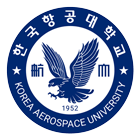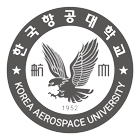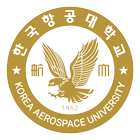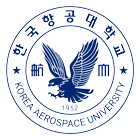- Degree & Programs
- Undergraduate
- College of AI Convergence
Degree & ProgramsDegree & Programs
UndergraduateCollege of AI Convergence
- Artificial Intelligence
Major - Computer Science and Engineering Major
- Semiconductor Systems Engineering Major
- Electronics and Avionics Engineering Major
- AI-ICT Convergence
Major - Department of Autonomous Vehicle Engineering
- Department of Software and Computer Engineering
- Department of Computer Engineering
- School of Electronics
and Information Engineering - Department of Electrical
and Electronic Engineering
-

Department of Software and Computer Engineering
- Location :
- Rm No 416 , the Electronic Engineering Building
- Telephone :
- +82 2 300 0180
- E-mail :
- yakim@kau.ac.kr
- Homepage :
- http://sw.kau.ac.kr/pages/main.php
Introduction
Undergraduates of the Department of Software and Computer Engineering study computer science, including information processing, artificial intelligence, data science, and security related to software. Selected as a Software-focused University in 2021, we strive to develop, nurture, and guide professionals with software skills by strengthening major courses, promoting industry-academia cooperation, and training talents specializing in the AI Convergent Project. The demand for advanced software technologies that drive the 4th Industrial Revolution will increase dramatically across all industries. Therefore, the Department of Software and Computer Engineering, which trains software professionals, can be the most promising choice.
Study
The Department of Software and Computer Engineering is divided into the fields of Advanced Software, AI, and Data to train experts in each field. The Advanced Software curriculum is designed to train developers in web/application and system software development, security, etc. The AI curriculum specializes in the field of artificial intelligence, including learning and inferring models and generating new data. The Data curriculum focuses on data-related subjects such as big data and databases.
Future
Graduates of the Department of Software and Computer Engineering become software engineers for software design, development, management, and research. They are employed not only by software companies such as Kakao, Naver, NHN, and Line, but also by renowned companies and public organizations in all industries such as Samsung Electronics, Hyundai Motor Company/Kia, Coupang, Korean Air, KT, Hanwha, Industrial Bank of Korea, Korea Electric Power Corporation, and Korea Financial Telecommunications & Clearings Institute. The graduates working at the aforementioned companies show high satisfaction in their jobs and the given options for employment.
-

Department of Autonomous Vehicle Engineering
- Location :
- Rm No 428 , the Mechanical Engineering Building
- Telephone :
- +82 2 300 0258
- E-mail :
- hschang@kau.ac.kr
- Homepage :
- http://ave.kau.ac.kr/pages/main.php
Introduction
The Department of Autonomous Vehicle Engineering was established in 2022 with the goal of developing professionals who will lead the AI and autonomous driving industries, which are expected to be new growth engines in the era of the 4th Industrial Revolution. As a participating department in the software-focused university project supported by the Ministry of Science and ICT in 2021, the department aims to train AI experts with technical knowledge and research skills needed by industrial companies through internships and project-based courses. Since the core of autonomous driving technology is the convergence of various disciplines, we are developing convergence experts through cooperation with related industries, while connecting with the Department of Software and Computer Engineering and Department of Smart Drone Engineering of the College of AI Convergence.
Study
Students study the engineering principles of AI/SW, electronics, and mechanics for the cognition, judgment, and control processes of autonomous driving systems, as well as embedded systems that incorporate these technologies and telecommunications engineering for data exchange. In addition, we aim to develop students into all-round system engineers through a design project-based curriculum. To this end, our curriculum is organized so that students experience the entire product development cycle, including planning, design, hardware manufacturing, software implementation, and testing. The curriculum consists of AI/SW fundamentals, convergence, advanced mobility, and practice. This allows students to acquire the comprehensive knowledge and skills needed to develop autonomous driving systems, and is also designed to enhance practical skills. In their freshman and sophomore years, students take basic courses in AI/SW fundamentals and AI/SW convergence. Starting from their sophomore year, they begin to take basic courses in the advanced curricula through Advanced Electronics/Communications Track and Advanced Control/Robotics Track. Such tracks include basic courses, such as underlying dynamics, introduction to electric and electronic, and hands-on experience. In their junior year, students take advanced courses in the previous subjects. In their senior year, they take advanced courses in AI autonomous driving, as well as design and practice courses. Instead of design courses, students can take electives, work on collaborative projects with the university or companies that are collaborating with the department, and participate in club activities and various on-campus and off-campus competitions to gain more hands-on experience.
Future
Graduates can find positions in domestic and foreign automobile, robot, and drone manufacturers, mobility service companies, auto component design and manufacturing companies, national research institutes, and artificial intelligence companies.
-

Department of Computer Engineering
- Location :
- Rm No 428 , the Mechanical Engineering Building
- Telephone :
- +82 2 300 0120 / 0130
- E-mail :
- jhkim@kau.ac.kr / sjlim@kau.ac.kr
Introduction
The Department of Computer Engineering aims to develop talents with creativity and practical skills to play a pivotal role in computer systems and computer applications, which are at the core of current and future industries. The program consists of computer hardware, computer software, and computer applications: Computer hardware sector includes knowledge and skills in computer system configuration and design, computer structure, system semiconductors, and embedded systems. Computer software includes knowledge and skills in computer programming, software development, algorithms, and data structures. The field of computer applications involves applying computer technology in various areas such as artificial intelligence, big data, communication, networking, multimedia, AR/VR, robotics, and automotive. The department provides specialized knowledge and skills that are closely related to key areas of the 4th Industrial Revolution, such as artificial intelligence, big data, and IoT, which can be applied in various industries.
Study
Major subjects in the field of computer hardware include digital system design, computer architecture, microprocessor applications, embedded system design, VLSI systems, and introduction to SoC design. Major subjects in the field of computer software include system programming, operating systems, information security, big data and cloud computing, and software engineering. Major subjects in the field of computer applications include machine learning, communication systems, computer networks, digital signal processing, image processing, computer vision, and robotics.
Future
Computer engineering is closely related to the core areas of the 4th Industrial Revolution. Accordingly, the Department of Computer Engineering will offer a prominent future to its graduates. In addition, the advancement of existing industries such as 5G, multimedia, aerospace, and cyber security, as well as the emergence of new fields through convergence between industries are expected to create more diverse jobs related to computer engineering.
▪ Manufacturing Industries : Hardware/software development positions in electronics companies, telecommunications companies, semiconductor companies (IDM, fabless design house), automotive companies, etc.
▪ Finance : Software development and system administration positions in banks, insurance, and securities companies, and fintech/blockchain/data analytics positions
▪ Internet/Security/Game/Multimedia Industries : Software developers in web portal/cloud/social media companies, broadcasting/gaming/security/content companies, and hardware/software developers in the defense and aerospace industries
▪ Education and Government Positions : University professors (PhD), senior technical officials in central and local governments, and researchers at government-funded research institutes (MSc/PhD) -

School of Electronics and Information Engineering
- Location :
- Rm No 428 , the Mechanical Engineering Building
- Telephone :
- +82 2 300 0120 / 0130
- E-mail :
- jhkim@kau.ac.kr / sjlim@kau.ac.kr
The School of Electronics, Telecommunication and Computer Engineering fosters high level engineers who will lead the core hi-tech domains of the future, such as the avionics, electronics, IT and computer industries.
The school was founded in 2000 by integrating the former departments of avionics, aviation IT and computer engineering. After completing the common and elective subjects in the first year, the students acquire knowledge in one of the following specialty areas - IT, electronics, avionics and computer data engineering - from the beginning of the second year. In order to foster high level science and technology talents equipped with the ability to resolve problems independently, the curriculum includes diverse basic and liberal arts subjects, in-depth major subjects, lab experiments, and on-the-job study programs.
This school is designed to enable students to play leading roles in their respective areas by training creative talents on inclusive and diverse training programs. To that end, the school helps the students to acquire the latest knowledge from the most advanced fields by progressively adapting its curriculum to reflect new technological developments in the industrial fields.
Furthermore, it enables the students to use the knowledge they acquire from the theoretical lectures on their respective major subjects through lab experimentation and on-the-job practice, and encourages them to study hard by holding academic seminars with experts invited from home and abroad, thereby narrowing the gap between the academic and industrial scenes. The school fosters excellent personnel in these rapidly-changing fields by helping students to develop their ability to think and express themselves through design subjects and project-based studies. -

Artificial Intelligence Major
- Location :
- Rm No 416 , the Electronic Engineering Building
- Telephone :
- +82 2 300 0180
- E-mail :
- yakim@kau.ac.kr
- Homepage :
- http://ai.kau.ac.kr:8100/pages/main.php
Introduction
The Artificial Intelligence (AI) major is dedicated to developing professionals who excel in both creativity and practical skills. The curriculum covers fundamental AI concepts, methods and technologies for implementing AI in software, and techniques for applying AI to data analysis. Supported by the Ministry of Science and ICT as a Software-Centered University since 2021, the program emphasizes industry-academia collaboration and corporate partnership projects, equipping students with the ability to address real-world problems directly. To stay ahead of the curve of the rapidly evolving AI field, the program integrates the latest technologies and industry trends into its education. The curriculum is designed to meet the demands of the industry and ensures that students are prepared to respond effectively to current and future needs in AI.
Curriculum Overview
Artificial Intelligence Focus:
Introduction to AI
Deep Learning
Applied Deep Learning
Computer Vision
AI Planning
Software Focus:
Introduction to Programming
AI Programming
Operating Systems
Algorithms
Problem Solving Techniques
Software Engineering
Data Science Focus:
Data Science
Databases
Big Data and Cloud Computing
Computer Networks
Career Path
Education and Research: University/Research institutes, corporation/government research organization. IT Company: IT company artificial intelligence, natural language processing, computer vision, robotics, smart home R&D. Automation: Product design automation, production optimization, smart cars. Finance: Detection of financial fraud, investment analysis, and development of personalized services.
-

Computer Science and Engineering Major
- Location :
- Rm No 416 , the Electronic Engineering Building
- Telephone :
- +82 2 300 0180
- E-mail :
- yakim@kau.ac.kr
- Homepage :
- http://com.kau.ac.kr:8110/pages/main.php
Introduction
The Computer Engineering major is composed of three modules: computer hardware, computer software, and data modules. Computer Hardware covers the knowledge and skills related to the composition and design of computer systems and embedded systems. Computer Software includes courses on coding, web/app software development, algorithms, and problem-solving. Data Modules focus on applying computer technology to data, covering topics such as data science and engineering, big data, machine learning, and artificial intelligence. Furthermore, the major has been strengthened by the selection for the Ministry of Education’s LINC+ Project in 2020 and the Ministry of Science and ICT’s Software-Centered University Project in 2021, enhancing industry-academia collaboration, and ensuring that all students engage in corporate partnership projects, thereby improving their practical problem-solving abilities in real-world scenarios.
Curriculum Overview
Computer Hardware Module Key Subjects: Digital System Design, Computer Architecture, Microprocessor Applications, Embedded System Design
Computer Software Module Key Subjects: Systems Programming, Operating Systems, Algorithms, Problem Solving, Information Security, Software Engineering
Data Module Key Subjects: Machine Learning, Data Science, Databases, Big Data and Cloud Computing, Computer Networks
Career Path
Manufacturing Industry: Hardware and software development roles in electronics, telecommunications, semiconductor, and automotive companies.
Service and Financial Sectors: Software roles in system integration companies, banks, insurance companies, and securities firms, as well as positions in fintech, blockchain, and data analysis.
Internet/Security/Gaming/Multimedia Sectors: Software developer roles in portal, cloud, and SNS companies, as well as in broadcasting, gaming, security, and content firms.
Defense and Aerospace Sectors: Hardware and software development roles.
Education and Public Service: University professor (Ph.D.), senior technical officer in central and local governments, and researcher in government-funded research institutions (Master's or Ph.D.). -

Semiconductor Systems Engineering Major
- Location :
- Rm No 428 , the Mechanical Engineering Building
- Telephone :
- +82 2 300 0130
- E-mail :
- sjlim@kau.ac.kr
- Homepage :
- http://sse.kau.ac.kr:8130/pages/main.php
Introduction
In the Semiconductor Systems major, students spend their first and second years studying general subjects, foundational subjects, and introductory major courses, and from the third year onward, they delve into advanced major-specific courses to gain in-depth knowledge in the field. In their fourth year, students are required to complete a comprehensive design course, fostering independent and creative development skills. The curriculum covers essential knowledge areas such as AI/Big Data, 5G, AR/VR, semiconductors, and intelligent sensors, as well as autonomous driving while also gaining expertise in areas such as physical electronics, semiconductor devices, semiconductor engineering, semiconductor process practice, semiconductor process simulation, digital system design, VLSI systems, and semiconductor device design. This unique curriculum aims to produce well-rounded talents who excel in semiconductor design, system software, and device and process fields.
Curriculum Overview
The Semiconductor Systems major will operate with a focus on three main areas:
Design: utilizing the components that make up semiconductors to implement semiconductor systems where each element interacts efficiently.
System Software: developing hardware programs that control and manage semiconductors to ensure the hardware correctly performs the desired operations.
Devices and Processes: finding the most optimal methods for manufacturing semiconductors, focusing on the primary materials that constitute semiconductor systems and using these materials to create fundamental semiconductor devices and processes.
Career Path
Electronics and IT Corporations: Major corporations in the electronics and IT fields, such as Samsung, LG, Hyundai, SK, etc.
Aviation and Defense Industry: Major corporations related to the aviation and defense industries, such as Aerospace Industries, Korean Air, Hanwha, LIG Nex1, etc.
Public Corporations: Korea Airports Corporation, Korea Electric Power Corporation, etc.
Research Institutes: Defense Science Research Institute, Electronics and Telecommunications Research Institute, Korea Aerospace Research Institute, etc.
Government Agencies: Broadcasting and Communications Commission, Ministry of Land, Infrastructure and Transport, etc. -

Electronics and Avionics Engineering Major
- Location :
- Rm No 428 , the Mechanical Engineering Building
- Telephone :
- +82 2 300 0130
- E-mail :
- sjlim@kau.ac.kr
- Homepage :
- http://eae.kau.ac.kr:8120/pages/main.php
Introduction
The Electronics and Avionics major offers a comprehensive curriculum encompassing both the broader field of electronics and the specialized domain of avionics. In electronics, the focus areas include sensor systems, automatic control, microwave and antenna technologies. In avionics, the curriculum covers satellite navigation systems (GPS), radar, radio navigation, aircraft electronic devices, aviation communication systems, automatic navigation systems, next-generation navigation systems, unmanned aerial vehicles (UAVs), and urban air mobility (UAM). The program combines theoretical education with practical experiments and hands-on training to develop highly skilled professionals capable of adapting to real-world scenarios.
As a practice-oriented and research-focused major, it features specialized laboratories engage in active research to foster innovation and advanced technologies such as Next-Generation Synthetic Aperture Radar (SAR) Laboratory, Electromagnetic Security Laboratory, Space Core Technology Development and Space Basic Research Laboratory, Space Debris Removal Core Technology Development (Space Challenge) Laboratory, and Intelligent Semiconductor Development for Multi-Mode Smart Radar (Basic Research Laboratory)
Curriculum Overview
The curriculum includes courses that cover key technologies such as radar and LiDAR for non-contact sensing, satellite navigation and integrated navigation systems, environmental perception and AI-based autonomous driving control for smart mobility. It also addresses leading defense technologies like electromagnetic interference mitigation and enhanced security measures. Additionally, with the advancement of the Fourth Industrial Revolution, students will explore applications in future satellite systems, urban air mobility (UAM), and electric vertical take-off and landing (eVTOL) vehicles. This comprehensive curriculum ensures that graduates are well-prepared to contribute to the advancements in these cutting-edge fields.
Career Path
Major corporations related to electricity/electronics, major corporations in the aerospace/automobile fields, defense-related companies, satellite radio system development companies, robot development and manufacturing companies, companies related to smart factories and logistics systems, further studies, etc.
-

AI-ICT Convergence Major
- Location :
- Rm No 428 , the Mechanical Engineering Building
- Telephone :
- +82 2 300 0120
- E-mail :
- jhkim@kau.ac.kr
- Homepage :
- http://ict.kau.ac.kr:8140/pages/main.php
Introduction
The AI and ICT Convergence major aims to develop creative and practical talents who will lead the ICT (Information & Communications Technology) systems and related application fields, which are the backbone of current industries and the core of future industries. The educational areas of this major are divided into ICT Hardware, ICT Software, and AI Convergence Application Systems.
The ICT Hardware field covers knowledge and skills related to the composition and design of ICT systems, such as smartphones and computers, as well as advanced ICT systems like robots and autonomous vehicles. This includes subjects such as ICT system composition design, computer architecture, system semiconductors, and embedded systems.
The ICT Software field focuses on the development of operating and application software for various ICT systems. It covers computer programming, software development, and algorithms.
The AI Convergence Application Systems field involves applying AI technology across various ICT domains, including communications, networks, multimedia, AR/VR, robots, automobiles, and unmanned vehicles.
Through a curriculum that reflects the latest technologies and research trends in the industry, the AI and ICT Convergence major provides practical training and in-depth research education to nurture well-rounded players equipped with both hardware and software implementation skills, ready to lead the AI era.
Curriculum Overview
1. ICT Hardware Key Courses: Digital System Design, Computer Architecture, Microprocessor Applications, Embedded System Design, VLSI System, Introduction to SoC Design.
2. ICT Software Key Courses: System Programming, Operating Systems, Information Security, Big Data and Cloud Computing, Software Engineering.
3. AI Convergence and Application Systems Key Courses: Machine Learning, Communication Systems, Communication Signal Processing Design, Computer Networks, Digital Signal Processing, Image Processing, Computer Vision, Robotics.
Career Path
Manufacturing Sector:
Positions in hardware and software development at companies related to electronics, communication equipment and devices, communication services, semiconductors (IDM, Fabless Design House), automotive, and UAM.
Defense Industry and Aerospace Sector:
Hardware and software developers.
Financial Sector:
Software positions and system management roles at banks, insurance companies, and securities firms, including positions in fintech, blockchain, and data analysis.
Internet/Security/Gaming/Multimedia Sector:
Software developers at portals, cloud services, social media companies, broadcasting, gaming, security, and content companies.
Government and Educational Sector:
Researchers at government-funded research institutes (master’s/Ph.D. level), technical public officials at central and local government agencies, and university professors (Ph.D. level). -

Department of Electrical and Electronic Engineering
- Location :
- Rm No 428 , the Mechanical Engineering Building
- Telephone :
- +82 2 300 0120 / 0130
- E-mail :
- jhkim@kau.ac.kr / sjlim@kau.ac.kr
Introduction
The Department of Electrical and Electronic Engineering provides students with a thorough education in the basic principles of electricity and electronics, the core of Korea's industry and the future of advanced information society. By offering a wide range of specialized fields, ranging from semiconductor components, equipment, and processes to integrated circuits and system HW/SW, power and energy, sensor systems required for space/satellite/defense, and advanced fields of robot control, this degree program strives to develop essential talents who will lead the future society. As a department focused on practical education and research, we are responsible for several major national research projects within the department, and we are conducting active research activities in basic, specialized and development laboratories.
Study
In addition to foundational courses such as numerical analysis and deep learning, the program offers differentiated courses in semiconductors (semiconductor devices, semiconductor engineering, semiconductor process practice and simulation), system semiconductors (analog integrated circuits, digital integrated circuit design), and sensors and control systems (intelligent radar, probabilistic robotics, emission security).
Future
Graduates will find themselves advantageous for employment in the fields of AI, semiconductors, intelligent automobiles, next-generation satellites, and the 4th Industrial sector, as well as high-tech companies and the defense industry.
▪ Semiconductor (Device & Process) : Memory/non-memory semiconductor companies, semiconductor foundry companies, semiconductor/display/battery-related materials, components, and equipment companies, electrical and electronics companies, national research institutes, further academic degree, etc.
▪ System Semiconductor (System IC) : Memory/non-memory semiconductor companies, fabless companies, IDM·design house·IP companies, electrical and electronics companies, automotive and aircraft electronics manufacturing and design companies, academic degree, etc.
▪ Sensor & Control System : Electrical/electronic major companies, electric vehicle/aircraft companies, aerospace and defense companies, robotics development and manufacturing companies, smart factory and logistics system companies, academic degree, etc.
- 76, Hanggongdaehak-ro, Deogyang-gu, Goyang-si, Gyeonggi-do, 10540, Korea
- Phone - +82-2-300-0114 FAX - +82-2-3158-5769 E-mail - webmaster@kau.ca.kr
- COPYRIGHT 2019 Korea Aerospace University. All right reserved.
 Go top
Go top